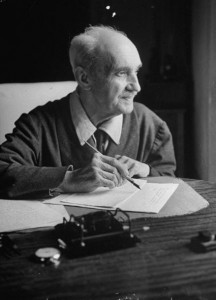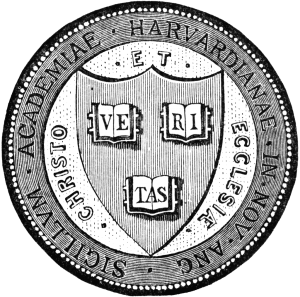 To Rosamond Thomas Bennett Sturgis
To Rosamond Thomas Bennett Sturgis
Hotel Bristol
Rome. Feb. 5, 1936
Dear Rosamond,
You are very good to want to come and nurse me, and I am sure you would do it better than the Blue Sisters to whom I expect to be consigned, if I have a long illness. If you came, I should feel as Oliver did when Edith (who had a trained nurse’s certificate) went to see him at the Stillman Infirmary–not that I am very like Oliver or you, thank God, very like Edith; but perhaps my last illness won’t be prolonged, and it won’t matter much who telephones for the undertaker. My ups and downs in health are very marked and very sudden. Now I feel all right again, only perhaps a little lazier physically, although mentally I was very fit even when confined to my room, and wrote a long article in my best style–unless I am in my dotage, and pleased with anything I may reel out.
The editor (of Scrutiny) to whom I sent it, however, and who doesn’t pay his contributors, said he was highly honoured. I fence in it a little with T. S. Eliot, who was once a pupil of mine, but never by any chance refers to me. Cory says he is afraid of me, as of a sort of devil. But you don’t know who Cory is. He will probably be the person to look after me when I get more dotty. He is an American but has now been ten years in Europe, and has helped me and my old friend Strong with some of our books. I call him my secretary, and he is to be my literary executor. At this moment, however, he is in London, giving some Sporting Cockneys lessons in baseball, for which he gets 30 shillings each time, and his fare from Bournemouth, where he likes to [illegible] waste the best years of his life playing golf. But he is half Irish and very human for a quasi-philosopher.
From The Letters of George Santayana: Book Five, 1933-1936. Cambridge, MA: The MIT Press, 2003.
Location of manuscript: The Houghton Library, Harvard University, Cambridge MA




